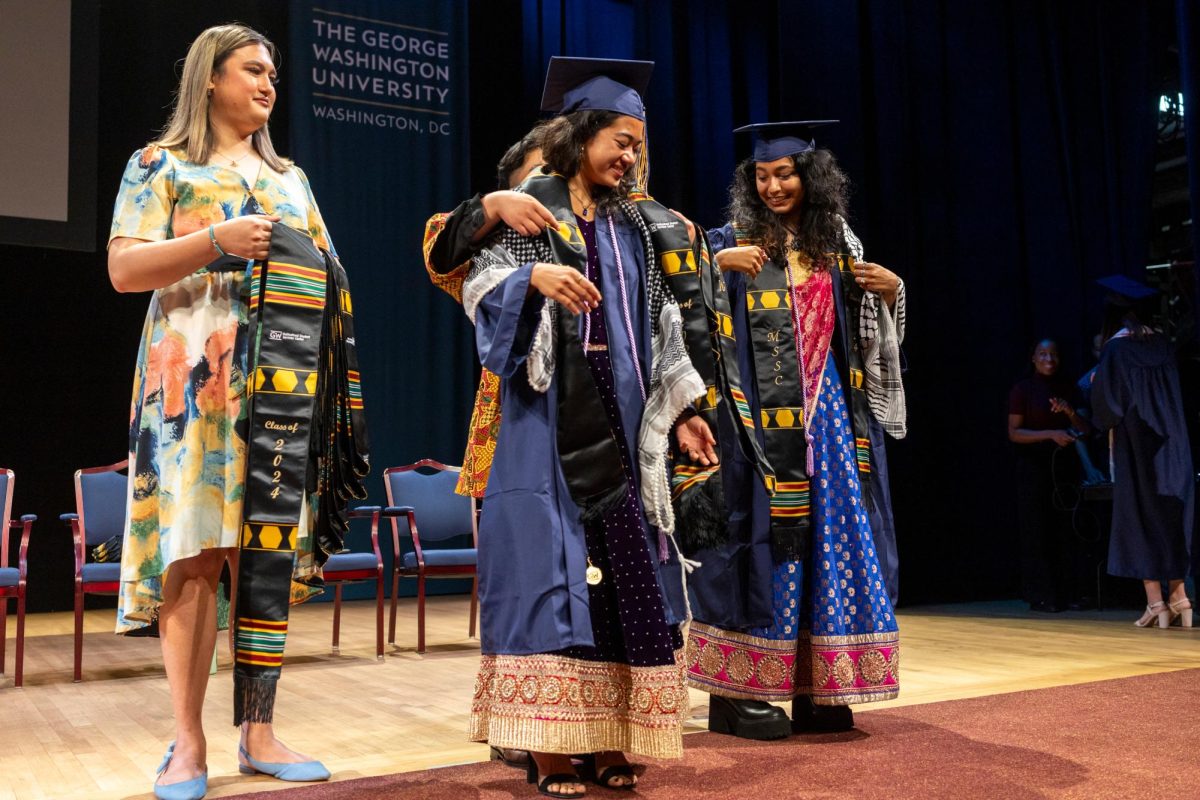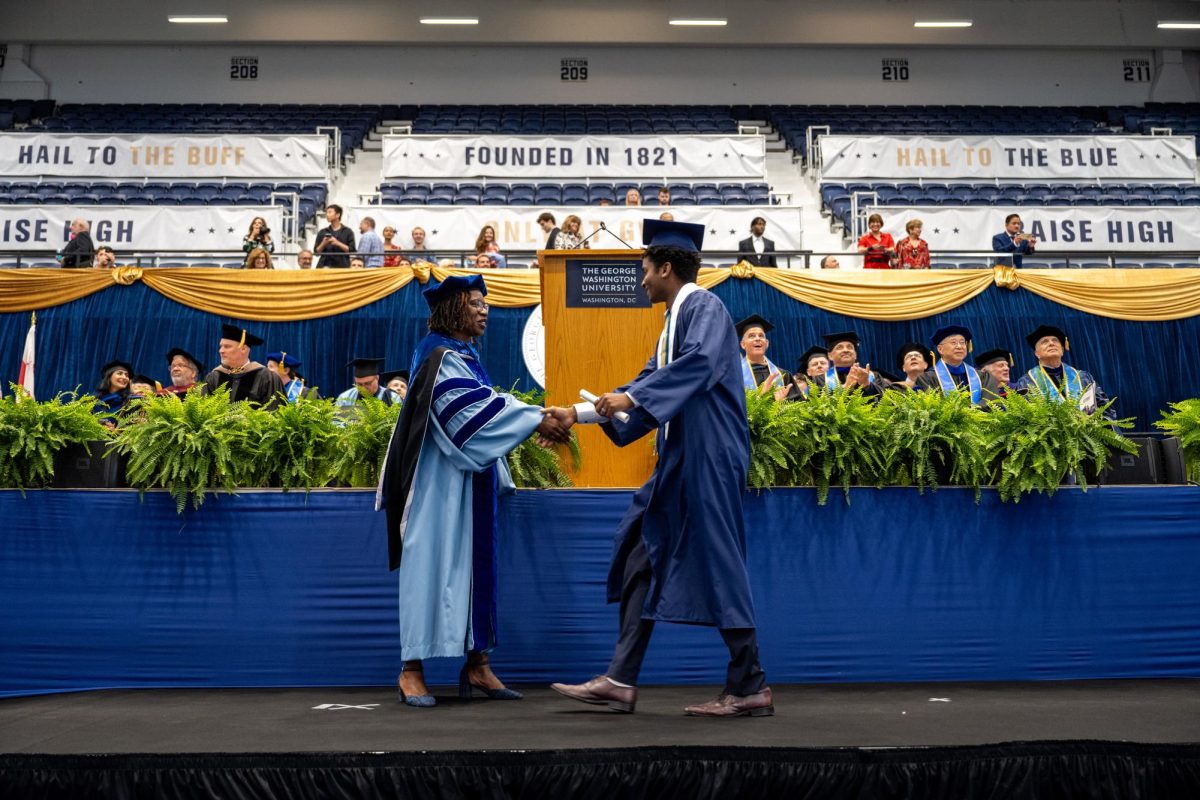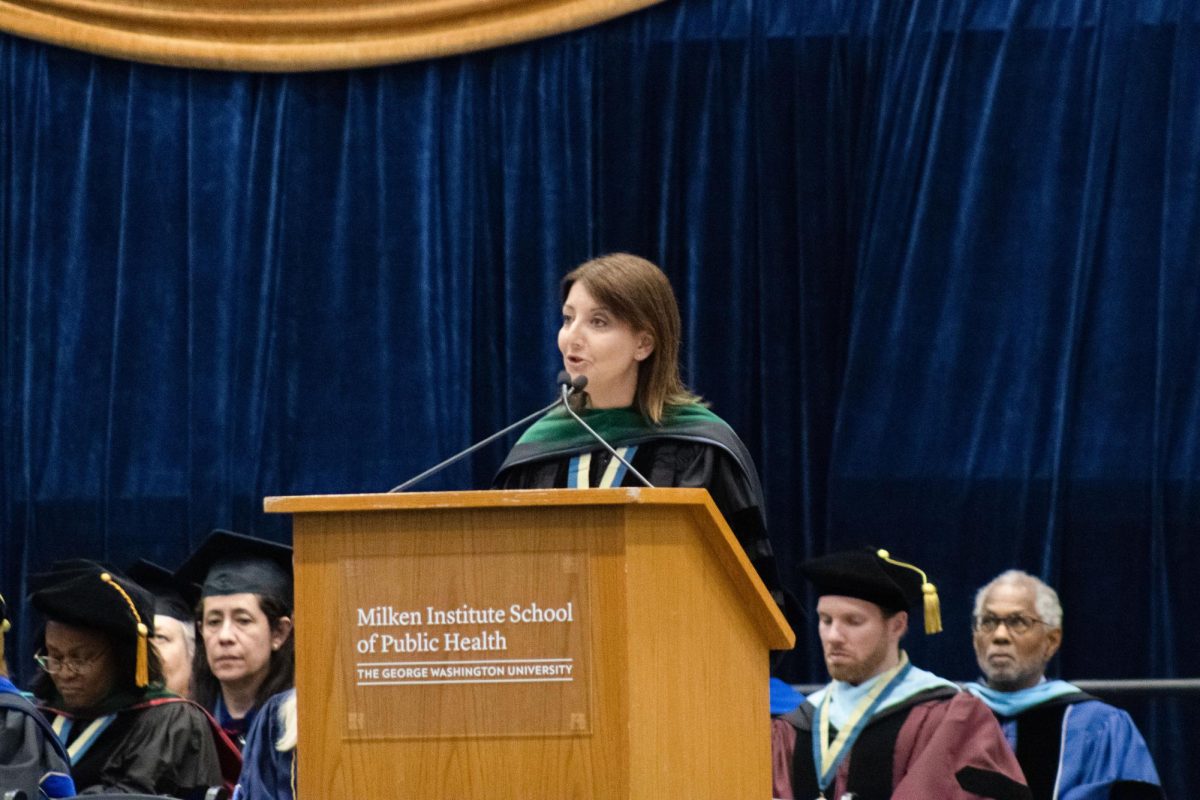When Ericka Medina found out in high school that her best friend was struggling with depression, the now-sophomore realized the power of a support network.
After she arrived on campus, she felt a lack of community for those battling suicide, depression and addiction and sought to create an environment of hope. She co-founded GW’s chapter of To Write Love on Her Arms last year, which officially became a student organization this fall.
“My best friend junior year had the strength the tell me that she was suffering from some of these things, and she’s been holding it in. And I realized that it’s a lot more important to other people than just me as an advocate,” Medina said. “People our age are really affected by these things, and not many people understand that it is okay to talk about mental illness and disease because it seems kind of taboo to society.”
To Write Love on Her Arms, a national nonprofit, was founded in 2006. Members are known for penning “love” and other messages of hope on their forearms, and though the act is not directed by the national organization, members advocate it as a way to promote the cause and bring supporters together.
“It serves a purpose to not only show you care, but it spreads word of the organization when everyone around you has this powerful word written on their arm,” Medina said.
There are 80 active university chapters of To Write Love on Her Arms at colleges around the country, which aim to provide support for students grappling with the stresses of college life.
Holly Hallum, director of To Write Love on Her Arms University Chapter Project, said depression and addiction are highly stigmatized and many people are too ashamed to seek help for fear of appearing weak. The organization serves as a stepping-stone for those suffering from mental illness to seek help from a doctor or psychiatrist.
“There needs to be a cultural shift in the attitudes that people have towards other people,” Hallum said. “We are a bridge to help.”
Medina said feedback from students has been positive and many have approached her to discuss their personal situations.
Polly Gregory, a freshman double majoring in theater and American studies, was the only person at her high school involved with the To Write Love on Her Arms. She works as an outreach representative for the GW chapter and said the stigma surrounding suicide and depression makes it easier for others to brush off or disregard.
“Several times, you’ll hear people say, ‘Oh, well just get over it,’ ” Gregory said. “But you wouldn’t hear someone say that to someone with cancer, and they’re both illnesses.”
She said she takes comfort in attending the group’s weekly meetings.
To officially be recognized as a chapter, Medina and other members attended a training conference to learn how create a network of support and deal with the issues of depression and self-abuse.
The group’s members became certified in a technique called “QPR” – question, persuade and refer. The method allows members of the organization to notice what Medina called “very miniscule” signs of depression.
“We notice these signs of people with suicidal tendencies that you know a lot of other people wouldn’t understand or even notice,” Medina said, adding that much of the shock that surrounds suicide comes from the hidden nature of depression.
Looking toward the spring, the chapter will host an open-mic event with local bands to perform called “Lyrics in Conversation” to provide alternative therapy.
“I just really hope that we stay on campus as an outlet, as a resource, as this community that you can always turn to whenever you need it, so that you know that you’re not alone and that there’s always help out there for you,” Medina said.







